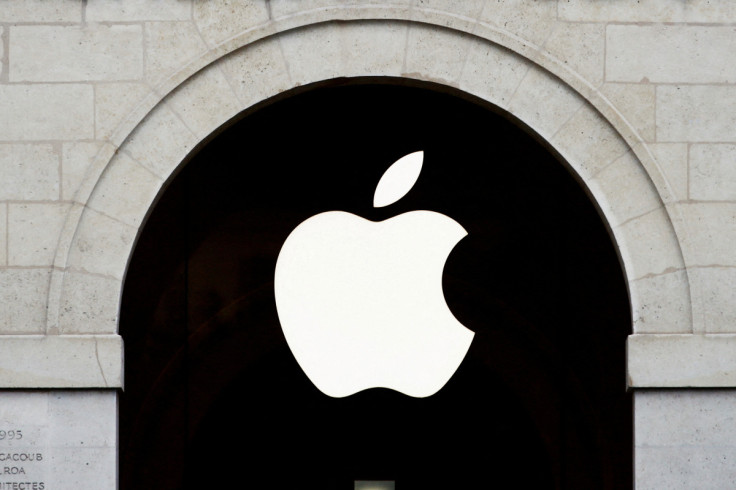Apple brings Tap to Pay on iPhone for UK businesses
Reliable Apple insider Dan Ives claims the iPhone 15 will include AI functionalities.

Apple has introduced Tap to Pay for iPhone users in the UK. To recap, Apple made its foray into the BNPL (buy now, pay later) service called Apple Pay Later in the US back in March. According to Bloomberg's Mark Gurman, the release of Apple Pay Later and other financial services was initially delayed due to technical and engineering issues.
Now, the Cupertino-based tech giant has entered the payment service segment with Tap To Pay. After making its debut in the US, Apple's Tap To Pay is finally headed to the UK. It is also worth noting that Apple announced the feature back in February last year.
Tap to Pay transforms your iPhone into a mobile point of sales terminal for merchants. All you need to set up Tap To Pay is a compatible mobile app. The feature allows merchants to accept digital wallet, credit, and debit card payments on their iPhones without requiring extra hardware.
Apple continues to expand Tap to Pay
UK-based merchants with at least an iPhone XS or newer will be able to use Tap to Pay. Next, they will have to download and install a compatible payment app from the App Store. Revolut and Tyl by NatWest will be the first platforms to support Tap to Pay on iPhone for UK business customers.
Apple confirmed that support for Worldline, Viva Wallet, SumUp, Stripe, myPOS, Dojo, Adyen, and Zettle by PayPal is coming soon. Moreover, the company is prepping to bring Tap to Pay on iPhone to Apple Store locations in the UK in the coming days.
In its official statement, Apple pointed out that Tap to Pay on iPhone has transformed the checkout experience for a myriad of businesses. Apple believes the service will bring "an easy, secure, and private way to accept contactless payments" to merchants across the UK.
Apple $AAPL announced today it has launched its Tap to Pay service in the UK 🇬🇧 - AppleInsider pic.twitter.com/wGqKoeOkrA
— Evan (@StockMKTNewz) July 13, 2023
Furthermore, the company clarified that the service will only rely on the iPhone's power, security, and convenience. In other words, the service does not require additional hardware. VP of Apple Pay and Apple Wallet Jennifer Bailey pointed out in the statement that small and medium-sized businesses have been an important part of the UK's economy for a while now.
The top executive further stated that Apple is enabling businesses in the UK to accept contactless payments. In other words, the company is helping payment networks, app developers, and payment platforms to grow their business.
After setting up Tap To Pay, merchants will be able to accept NFC payments from customers with just a tap. Apple has also assured users that it will provide the same level of security available within Apple Pay, which uses the Secure Element Encryption tech.
Also, Apple will not have access to the specific transaction data on what is being purchased. So, a user's privacy is secured. While it is still unclear whether Apple will roll out the feature to more regions, the company is reportedly planning to push AI into the next-generation iPhone.
iPhone 15 tipped to be more AI-oriented
Apple could use AI to boost the Health app on the highly-anticipated iPhone 15 series, according to Dan Ives. Notably, Ives is an analyst at Wedbush Securities with a decent track record for iPhone predictions.
Ives recently told the Daily Mail that Apple is on the verge of "aggressively" moving into artificial intelligence. Furthermore, he suggests the company's AI future will start with iPhone 15 and an upgraded Health app.
“iPhone 15 tipped to spearhead Apple’s ‘aggressive’ use of #AI”
— ultrapampers (@ultrapampers) July 13, 2023
This is the company that managed to make #Siri dumber over the years, so I’ll remain skeptical. Siri fails at the most basic of queries today. pic.twitter.com/KE3gT3CHBT
Apple iPhone models aren't as AI-centric as some of their rivals including the Google Pixel 7 series phones, which pack Tensor chips with AI-powered abilities. Since past leaks suggest the iPhone 15 series will be just an iterative upgrade in terms of hardware over the iPhone 14, there is a possibility Apple could upgrade the software department using AI to give iPhone fans something to cheer about.
Currently, Apple uses machine learning for smart photo rendering and its virtual assistant, Siri. Aside from this, the company offers neural processing capabilities with its recently unveiled A-series chips. Likewise, iOS 17 uses plenty of machine learning capabilities to tackle auto-correct woes.
© Copyright IBTimes 2025. All rights reserved.






















